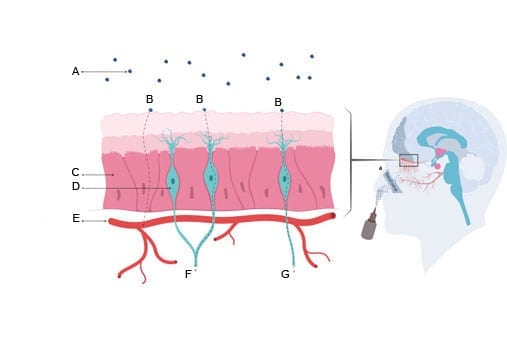A new analysis by Oregon State University researchers of California’s mental health system finds that comprehensive, community-based mental health programs are helping people with serious mental illness transition to independent living.
Published in the October issue of the American Journal of Public Health, this study has important implications for the way that states finance and deliver mental health programs, and speaks to the effectiveness of well-funded, comprehensive community programs.
In November of 2004, California voters passed the Mental Health Services Act, which allocated more than $3 billion for comprehensive community mental health programs, known as Full Service Partnerships (FSP). While community-based, these programs are different from usual mental health services programs in most states because they provides a more intensive level of care and a broader range of mental health services and supports, such as medication management, crisis intervention, case management and peer support.
It also provides services such as food, housing, respite care and treatment for co-occurring disorders, such as substance abuse.
“We found that these programs promoted independent living in the community among people who had serious mental illness but had not been served or underserved previously,” said Jangho Yoon, an assistant professor of health policy and health economist in OSU’s College of Public Health and Human Sciences and lead author of the study. “Overall, it reduced their chance of living on the street or being incarcerated in jails and prisons.”
The researchers looked at data from 43 of California’s 53 counties, resulting in a sample of 9,208 adults over the course of four years. They found that participants who stayed enrolled in the program continuously, without interruption, were 13.5 percent more likely to successfully transition to independent living.
However, they found that non-white patients were less likely to live independently, and more likely to end up in jail or homeless.
“Although FSPs represent the most well-funded comprehensive community-based programs in the country, they are still community programs and therefore program participation is voluntary,” Yoon said. “My guess is that minorities may not benefit fully from these programs in their communities possibly due to greater stigma, and less family/social supports. But it needs further investigation.”
Patients with schizophrenia and bipolar disorders were also less likely to benefit from the community programs, because of the nature and severity of their mental health issues.
The Latest Bing News on:
Community-based mental health programs
- No-cost mental health counseling offered to food and beverage workers throughout Virginiaon May 9, 2024 at 8:15 am
Food and beverage workers in Virginia and Washington D.C. will soon have access to no-cost counseling to address mental health.
- 'The verge of collapse': County leaders call on state to improve mental health systemon May 9, 2024 at 6:19 am
WE’VE NOT RECEIVED ANY KIND OF ADDITIONAL FUNDING, SO IT BECOMES VERY DIFFICULT TO SUSTAIN A GROWING POPULATION IN OUR COMMUNITY WITH WITH THE ... $250 million of extra funding for county-based mental ...
- Gándara Center Tackles Mental Health and More with Cultural Sensitivityon May 9, 2024 at 2:56 am
Breaking Down Barriers There’s no doubt, Lois Nesci said, that the COVID years triggered or exacerbated a lot of mental-health issues, which makes the multifaceted of Gándara Center more ...
- Southern Smoke Foundation’s Mental Health Program for F&B Workers Is Expanding to Additional Stateson May 8, 2024 at 9:39 am
Maine, Massachusetts, Tennessee, South Carolina, and Virginia will soon gain access to the foundation's free counseling initiative.
- Jana Marie Foundation Hosting Mental Health Awareness Month Eventson May 8, 2024 at 2:02 am
With Mental Health Awareness Month in full swing, Jana Marie Foundation is planning a host of events to promote mental well-being and resilience within the community. The State College-based nonprofit ...
- Community Associates and Modern Press: San Diego-Based Park Mental Health Facility Offers Patients Opportunity to Regain Control, Reclaim Their Liveson May 6, 2024 at 6:07 pm
SAN DIEGO, CA / ACCESSWIRE / May 6, 2024 / Park Mental Health's comprehensive, individualized treatment plans help its clients return to or create productive, content and healthy lives by offering a r ...
- Washtenaw United: Care-Based Safety serves as an safer alternative to solving mental health criseson May 6, 2024 at 4:40 am
There is growing support for an alternative to police response to a mental health crisis in the community. The question is: Can it be a safer and more effective tool in dealing with such incidents for ...
- 'When you have a heart, it makes a difference': Monmouth cops launch mental health programson May 3, 2024 at 1:54 pm
FREEHOLD - Three mental health programs are launching in Monmouth County, focusing on law enforcement interactions and senior citizens in time for mental health awareness month in May, Prosecutor ...
- Confronting our mental health crisison May 1, 2024 at 2:00 am
The stark contrast between the gleaming skyline of New York City and the shadowed streets, where the untreated mentally ill wander, is a daily reminder of our failed mental health system.
- Natalie Kelly: Mental Health Awareness Month — the first step may be the step that saves your lifeon April 30, 2024 at 4:08 pm
May is Mental Health Awareness Month, and it’s a good time to assess our own mental health and the mental health of those we love. The first step someone takes to get mental health support can be the ...
The Latest Google Headlines on:
Community-based mental health programs
[google_news title=”” keyword=”community-based mental health programs” num_posts=”10″ blurb_length=”0″ show_thumb=”left”]
The Latest Bing News on:
Independent living
- Senior living: Here’s what to know about assisted living facilitieson May 9, 2024 at 7:42 am
Are you confused about what an assisted living facility is, and how it differs from a nursing home? Here’s a guide to this type of housing for older people.
- Independent Living: How to Plan and Budget for Aging in Placeon May 9, 2024 at 7:07 am
Despite people’s intentions to get ready for aging, people procrastinate … we end up doing expensive renovations for people who should have started the process anywhere from five to maybe even more ...
- Community Integration and Social Inclusion: The Role of Supported Independent Living in Melbourneon May 9, 2024 at 4:43 am
Community integration and social inclusion are fundamental aspects of Supported Independent Living offered by NDIS Providers in Melbourne.
- Senior Living Experiences: 2024 Survey Reporton May 5, 2024 at 5:00 am
Senior living communities can take a range of forms, from independent living to assisted living and memory care, all of which are designed to meet the changing needs of older adults. In the U.S.
- Americans for Independent Living receives $25,000 donation from First Interstate Bankon May 4, 2024 at 10:00 am
WATERLOO — Americans for Independent Living recently received a $25,000 gift from First Interstate Bank and the First Interstate BancSystem Foundation as part of their third-annual Believe in Local ...
- Directions in Independent Living's 3rd Wine Walk is Saturdayon May 1, 2024 at 7:02 am
OLEAN — Directions in Independent Living is pleased to announce its third annual Wine Walk being held on Saturday.
- Towson senior living community starts $16M renovationon May 1, 2024 at 3:19 am
Baltimore County's senior living industry has seen several changes recently. Edenwald Senior Living, one of Maryland's largest senior housing companies, purchased a mansion in Towson for $2 million ...
- Independent Living comes to Omaha this summeron April 29, 2024 at 7:30 am
C Ovation Heartwood Preserve. New Independent Living residence at Ovation Heartwood Preserve is opening its doors at the 500-acre luxurious retirement community.
- Three Pillars Senior Living Communities in Dousman begins next phase in campus enhancementon April 29, 2024 at 3:05 am
Three Pillars, a longtime presence in the village, announced plans four years ago to add senior housing, memory care units and more.
- Independent Living Activities & Fun: Something for Everyoneon April 28, 2024 at 2:29 am
Key Takeaways Independent living communities are a great option for active seniors. On-site activities can help seniors pursue old and new hobbies. Independent living activities ...
The Latest Google Headlines on:
Independent living
[google_news title=”” keyword=”independent living” num_posts=”10″ blurb_length=”0″ show_thumb=”left”]











